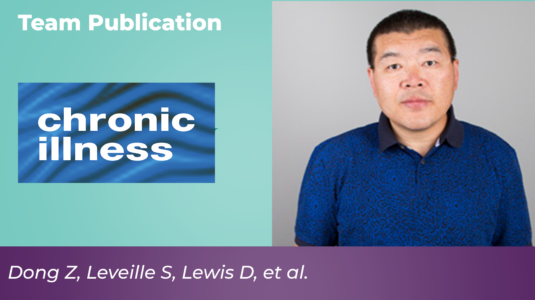This study tested self-directed tools for older adults with chronic conditions to identify healthcare priorities. Website engagement was low, but 26% completed an Epic previsit questionnaire. Most found it helpful, and physicians noted it facilitated end-of-life care discussions.
Other Patient Populations
Identifying research priorities and essential elements of palliative care services for people facing malignant brain tumors: A participatory co-design approach
Malignant brain tumors (brain cancer) significantly affects the quality of life (QoL) of patients and their care partners, particularly in areas like cognition and communication. This study aimed to find out the top research priorities for palliative care in brain cancer using a collaborative, community-driven approach.
Catalyzing dementia care through the learning health system and consumer health information technology
This perspective discusses how emerging payment models, quality improvement initiatives, and population health strategies present opportunities to embed best practice principles of ADRD care within the LHS. We aim to stimulate progress toward sustainable infrastructure paired with person- and family-facing innovations that catalyze broader transformation of ADRD care.
People with diabetes who read their clinicians’ visit notes: Behaviors and attitudes
People with diabetes want to read their clinicians’ notes, are accessing them at high rates, and report understanding the notes and benefiting from reading them. Clinicians can encourage further engagement by enhancing the readability of notes and discussing the availability of notes with patients.
Patient characteristics and utilization of an online patient portal in a rural academic general internal medicine practice
In a rural academic internal medicine clinic, female patients, aged 41–65, non-smokers, and those without certain chronic conditions were more likely to use an online patient portal. Recognizing and addressing barriers to patient portal use is essential for robust and sustained patient portal uptake and ensuring that the benefits of portal use are equally distributed among all patients.
How do older patients with chronic conditions view reading open visit notes?
Authors examined the experiences with and perceptions of the effect of reading clinical outpatient visit notes on older adult patients with multiple chronic conditions at three healthcare organizations with significant experience sharing clinical notes with patients. The majority of respondents had read two or more clinical notes in the 12 months before the survey. Patients with more than two chronic conditions were more likely than those with fewer or none to report that reading their notes helped them remember their care plan, take their medications as prescribed, and understand and feel more in control of their medications. Very few patients reported feeling worried or confused about their health or medications due to reading their notes.
Impact of Patient Access to Online VA Notes on Healthcare Utilization and Clinician Documentation: A Retrospective Cohort Study
In an effort to foster patient engagement, some healthcare systems provide their patients with open notes, enabling them to access their clinical notes online. In January 2013, the Veterans Health Administration (VA) implemented online access to clinical notes (“VA Notes”) through the Blue Button feature of its patient portal.
Patients Managing Medications and Reading Their Visit Notes: A Survey of OpenNotes Participants
We examined patients’ perceptions of how note reading affects factors related to medication adherence. In addition, we sought to understand their engagement with online medication lists and their willingness to participate in keeping those lists correct and up to date.
Impacts of a web-based educational program for veterans who read their mental health notes online
The OpenNotes initiative encourages health care systems to provide patients online access to clinical notes. Some individuals have expressed concerns about use of OpenNotes in mental health care. This study evaluated changes in mental health clinicians’ attitudes and communications with patients after participation in a Web-based course designed to reduce potential for unintended consequences and enhance likelihood of positive outcomes of OpenNotes.
The Importance of Visit Notes on Patient Portals for Engaging Less Educated or Nonwhite Patients: Survey Study
Less educated and nonwhite patients using the portal each assigned higher importance to reading notes for several health behaviors than highly educated and white patients, and may find transparent notes especially valuable for understanding their health and engaging in their care. Facilitating access to notes may improve engagement in health care for some vulnerable populations who have historically been more challenging to reach.







